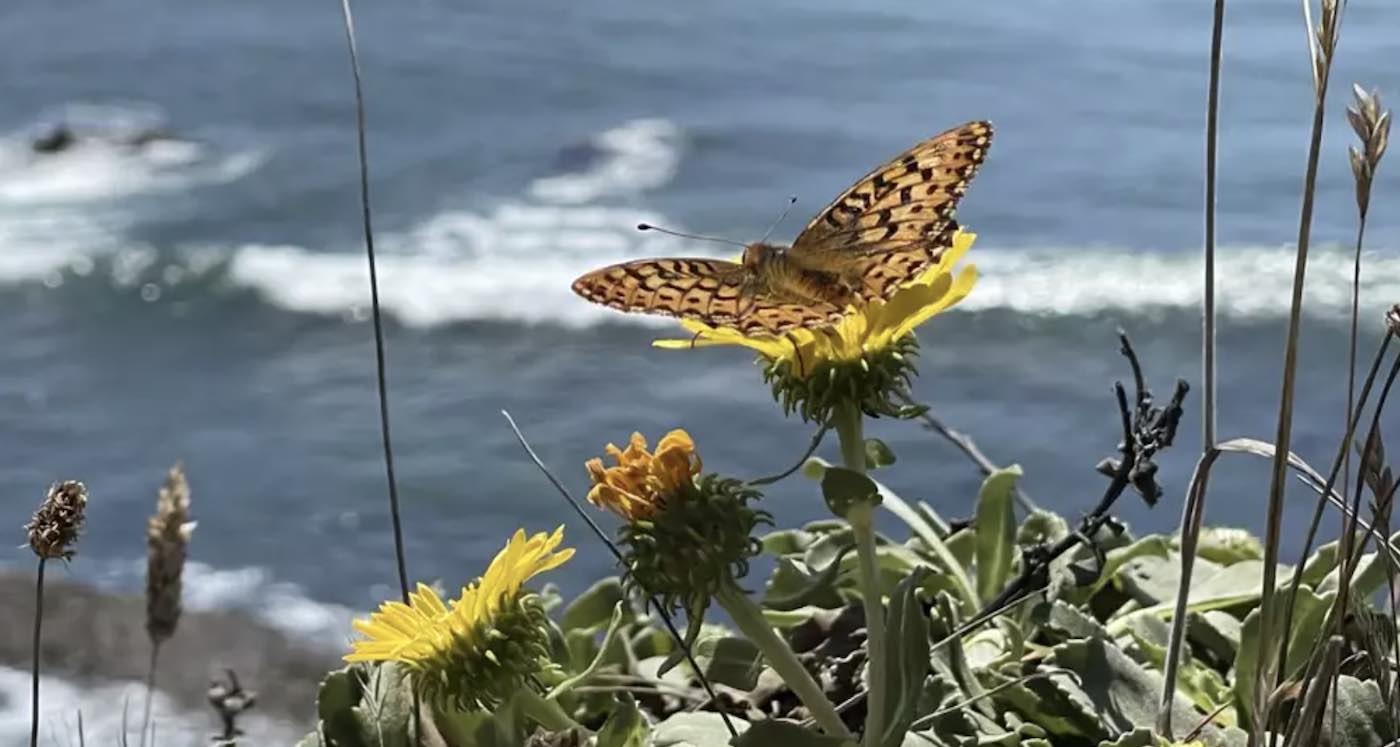Monarch butterflies are returning to gardens across the United States, but a few months ago, I stood in a mountain forest in Mexico where the monarchs spend the winter. They clustered on trees by the thousands and when the sun hit them, they swarmed in a cloud of bright orange confetti.
I was surrounded by an unimaginable number of butterflies but also, I knew, far less than there should be. This year’s population was the second-lowest ever recorded.
I saw firsthand how avocado production is encroaching on the butterflies’ forests and draining their water supplies. The Monarch Butterfly Biosphere Reserve is in Michoacán, the world’s largest producer of avocados and is where most of the avocados shipped to the United States come from.

The reserve is a UNESCO World Heritage Site where millions of monarch butterflies migrate from across North America and across generations to spend the winter. It’s one of the planet’s most incredible migrations. And it’s threatened by our love of avocados.
On a recent trip to Michoacán, U.S. Ambassador Ken Salazar expressed concern about the proliferation of avocado orchards on illegally deforested lands, saying, “They shouldn’t have the opportunity to sell those avocados to the United States market.”
There’s no time to waste turning that statement into policy. Because while cartels, importers and grocery stores are cashing in on the “green gold,” Mexico’s forests, the wildlife that depend on them, and the surrounding communities are suffering the consequences.
When I returned home from my own trip, I looked for avocados that I could be sure weren’t harming the monarchs. But every avocado in every grocery store near me was labeled from Mexico with no way to tell whether they’d come from a plantation on recently deforested lands.

Nearly 90% of avocados sold in the United States are imported from Mexico. People in the United States gobble up nearly 3 billion pounds of avocados annually, three times more than we ate 20 years ago.
Yet local and Indigenous communities, small farmers, and farm workers aren’t reaping the benefits of avocados’ meteoric rise. Instead, the lucrative industry has attracted organized crime and locals are suffering the costs of violence, pollution, water hoarding, land grabs and deforestation.
That’s why the Center for Biological Diversity, where I work, and more than 25 other organizations sent a letter last week to federal officials urging them to stop importing and promoting avocados grown on lands deforested since 2014.
Eastern monarch butterfly numbers have fallen more than 90% over the past 20 years. They face extreme threats throughout their migration, from habitat loss to pesticides, so having safe overwintering grounds in Mexico is critical to the species’ survival.
As of 2018, nearly 2,400 acres of the Monarch Butterfly Biosphere Reserve had been replaced by avocado plantations. The surrounding forests have also been logged, making the reserve more vulnerable to the effects of climate change and less suitable for the butterflies.

But it’s not just monarchs in danger. Avocado expansion endangers 10 species of threatened pollinators in Mexico, including lesser long-nosed bats, Mexican long-tongued bats, rufous hummingbirds and three species of bumble bees. Over the past 10 years, 10 football field sized tracts of land a day have been cleared to expand avocado production.
While Mexico and the United States signed an agreement to stop deforestation to help fight climate change, Michoacán’s forests continue to be destroyed to grow more avocados. Because most of Michoacán’s avocado harvest is sent our way, the United States has a huge influence on the industry there. Mexican officials have asked for help to keep avocados associated with deforestation out of the U.S. market.
State, agriculture and trade officials need to put a mechanism in place to ensure that only deforestation-free avocados reach the United States. The USDA already inspects avocado shipments for pests — they can also certify that the fruit wasn’t grown on deforested lands. Until that mechanism is in place and shoppers can feel confident about where their avocados came from, avocado imports from Mexico should be suspended.
In the meantime, grocery stores and importers can commit to only selling deforestation-free avocados and hold their supply chains accountable for any destruction of forests and violence toward local and Indigenous communities.
Avocado lovers can look for fair trade, organic and domestically grown avocados. Fair trade certification protects forests and independent producers, although fewer than 1% of the avocados consumed in the United States are fair trade. Buying organic avocados supports smaller producers and safeguards workers and the environment from toxic chemicals.
The majority of avocados are grown on long-established plantations by law-abiding farmers, so banning imports of avocados from recently deforested lands won’t harm their livelihoods or affect our ability to keep enjoying avocado toast and guacamole.
But it would help reduce criminals’ power over the industry, protect local communities and the future of monarch butterflies.
This article by Stephanie Feldstein was first published by Mongabay.com on 22 April 2024.
What you can do
Help to save wildlife by donating as little as $1 – It only takes a minute.







Leave a Reply